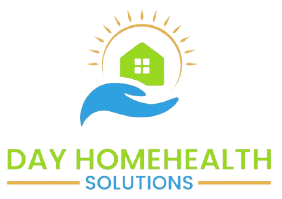
Introduction: Navigating Medicare compliance can be challenging for home health agencies. Even the most experienced agencies face pitfalls that, if unaddressed, could lead to financial penalties, denied reimbursements, or in the worst-case scenario, Medicare disqualification. Identifying and avoiding these common pitfalls is essential for compliance and the long-term success of any home health agency.
Key Points:
Poorly Trained Staff:
- Staff who are unfamiliar with Medicare requirements can inadvertently create compliance issues. Medicare’s standards are complex, and they frequently change, which means consistent training is necessary. Poor training can lead to mistakes in patient records, coding, and billing, making agencies vulnerable to audits.
-
- Solution: Invest in an ongoing training program for all staff, from administrators to caregivers. Training should cover Medicare requirements, proper documentation practices, and any recent changes in regulations. Quality assurance audits can highlight areas where additional training may be needed.
- One of the leading causes of Medicare compliance issues is inadequate documentation. Medicare requires detailed patient information, including assessments, care plans, and follow-ups. Agencies often overlook critical details, leading to incomplete records that can trigger audits or payment delays. Comprehensive documentation shows that the care provided meets Medicare’s standards, verifying patient eligibility, and supporting each billed service.
-
- Solution: Conduct regular documentation reviews to ensure all required information is recorded. Encourage staff training to understand documentation expectations better and provide templates to streamline processes.
Inconsistent Patient Assessments:
- Medicare mandates specific timelines and requirements for patient assessments. Skipping or inadequately performing assessments can cause discrepancies in patient care records, leading to audit flags. This also leads to gaps in care and delayed or inadequate intervention which negatively impacts patients patient outcomes. Regular, thorough assessments demonstrate that patient needs are being met and help tailor individual care plans.
- Solution: Implement a structured assessment schedule, ensuring assessments are consistent and meet Medicare guidelines. Quality assurance audits can help verify compliance with these requirements, providing a second layer of review for assessment accuracy.
Lack of Internal Audits:
- Internal audits are crucial to identifying potential compliance issues before an external audit occurs. Agencies that skip internal audits or perform them inconsistently risk letting small issues grow into significant problems.
-
- Solution: Conduct proactive internal quality assurance audits to catch potential compliance issues early. Regular audits can identify documentation gaps, staff training needs, and process improvements to reduce the likelihood of a costly Medicare audit.
Conclusion: Understanding and proactively addressing these Medicare compliance pitfalls can safeguard your home health agency from audits, denials, and penalties. Partnering with a specialized QA audit provider can help streamline compliance efforts, mitigate risks, and ensure your agency meets the highest standards of patient care.
